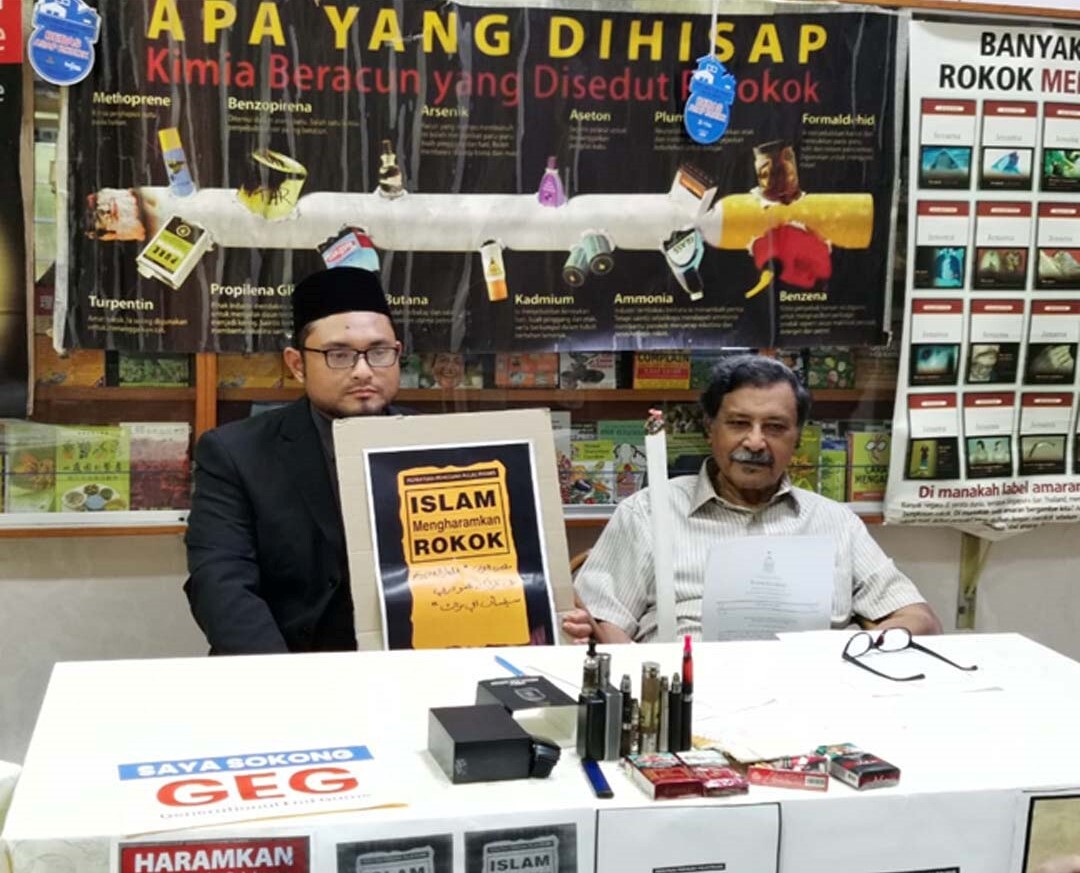KUALA LUMPUR, Sept 20 – The Consumers’ Association of Penang (CAP) has insisted on passage of the tobacco control bill that proposes a smoking generational end game (GEG), saying that it can be challenged in court after the bill is passed into law.
CAP president Mohideen Abdul Kader was responding to former Chief Justice Zaki Azmi, who said in a recent op-ed that the GEG, as legislated in the Control of Tobacco Product and Smoking Bill 2022, may be unconstitutional, discriminatory, and affect civil liberties.
“The proper forum for challenging the validity of laws enacted by Parliament are our courts and not the media,” Mohideen said in a letter published by The Star today.
“After the tobacco bill becomes law, anyone who is dissatisfied with it can challenge it.”
Zaki, Malaysia’s sixth chief justice who served from 2008 to 2011, said the GEG – which seeks to prohibit the sale to and use by anyone born from January 1, 2007, of tobacco and vape products – may breach Article 8 of the Federal Constitution on the right to equality and equal protection under the law.
He pointed out that the GEG is unlike the minimum legal age for things like marriage or voting, as the proposed generational tobacco and vape ban is a permanent prohibition for adults above the age of 18 who are born from a certain date.
The senior lawyer also noted that the GEG differed from other tobacco control regulations, such as increased taxes, that apply equally to all adults.
“The essence of a generational endgame can be argued to be discriminatory, as it deprives a generation of adults from exercising what they may claim to be their freedom of choice while other adults face no similar deprivation,” Zaki said.
CAP responded by saying: “A short answer to this is that no person has a right to harm or kill himself or others, or to impose a heavy financial burden on our health care system.”
The consumer rights’ group claimed that tobacco use is the “leading cause of cancer in Malaysia”, without providing statistics.
Malaysia’s latest cancer registry report with data from 2012 to 2016 found that breast cancer is the most common cancer in the country at 19 per cent of cancer cases detected. This was followed by colorectal cancer (13.5 per cent) and lung cancer (9.8 per cent).
Citing the Malaysia National Cancer Registry Report (MNCRR), Health director-general Dr Noor Hisham Abdullah said the data breakdown according to age standardised incidence rates (ASR) is 102 cancer cases for every 100,000 women and 86 cancer cases among men with the same population ratio.
Smoking in Malaysia is a predominantly male problem, with current smokers making up nearly half of adult men in every age group from 20 to 54 years. Smoking prevalence is only 1 per cent among females aged 15 and above. Malaysia’s national current smoking rate across gender is 21.3 per cent.
CAP noted that the government spent RM6.2 billion to treat three major smoking-related diseases in 2020, twice more than the RM3 billion revenue generated from tobacco sales. The three major smoking-related diseases were lung cancer, heart disease and chronic obstructive pulmonary disease.
“The Bill is not arbitrary but in furtherance of the right to life as enshrined in Article 5 of the Federal Constitution,” said Mohideen.
“Its purpose is to nip the problem, nicotine addiction, in the bud. Tobacco smoking is an addiction acquired over many years, and the Bill aims to stop it by targeting the younger generation.”
CAP noted that Malaysia’s National Strategic Plan on Tobacco Control (NSPTC) 2015-2020 aims to reduce smoking prevalence to 15 per cent by 2025 and to achieve the “end game” of tobacco in Malaysia by 2045.
Malaysia is a signatory to the World Health Organization’s Framework Convention on Tobacco Control (FCTC), an international treaty that aims to reduce tobacco use and exposure to tobacco smoke.
“The Tobacco Bill is a well thought of, rational and reasonable piece of legislation to achieve the objectives of the NSPTC and FCTC,” said Mohideen.
“Before it was tabled in Parliament, the Bill had been scrutinised by the Attorney General’s Chambers to ensure that it complies with our Constitution. It is now before the Special Select Committee, which is dealing with the issues of constitutionality and enforcement.
“There seems to be no problem with the first issue and the government has agreed to some changes in the latter.”
CodeBlue recently reported an anonymous source, who attended the tobacco bill parliamentary special select committee’s (PSSC) September 8 meeting, as saying that the PSSC generally agreed to retain Section 17(1)(a) and (b) of the Control of Tobacco Product and Smoking Bill, but to drop Section 17(1)(c) on the ban of possession of tobacco or vape products for anyone born from January 1, 2007.
Under Section 17(1)(a), individuals born on January 1, 2007, onwards are prohibited from smoking any tobacco product or substitute tobacco product, while Section 17(1)(b) prohibits these people from using any smoking device.
CAP did not address Zaki’s deep concerns with the “broad” enforcement powers provided for in the tobacco control bill, which he said raised significant issues of disproportionality and endangering civil liberties.
Protection of civil liberties, wrote the former chief justice, is the “cornerstone” of the Federal Constitution.
Health Minister Khairy Jamaluddin aims to table the Control of Tobacco Product and Smoking Bill for debate in the next Dewan Rakyat meeting scheduled from October 3. Budget 2023 is scheduled for tabling on October 7, amid wide speculation that Parliament may be dissolved before the federal budget is passed to pave way for the 15th general election.








